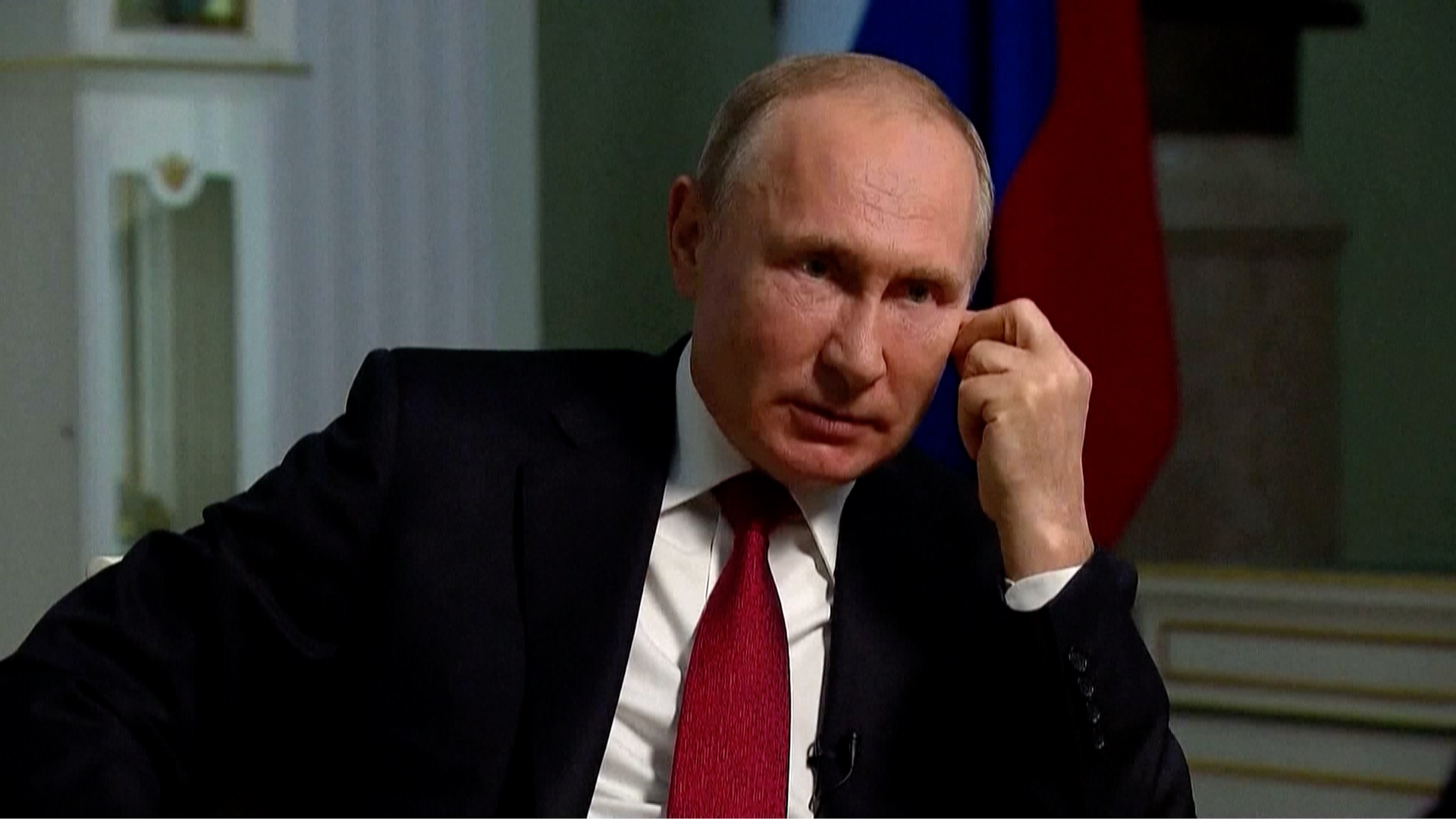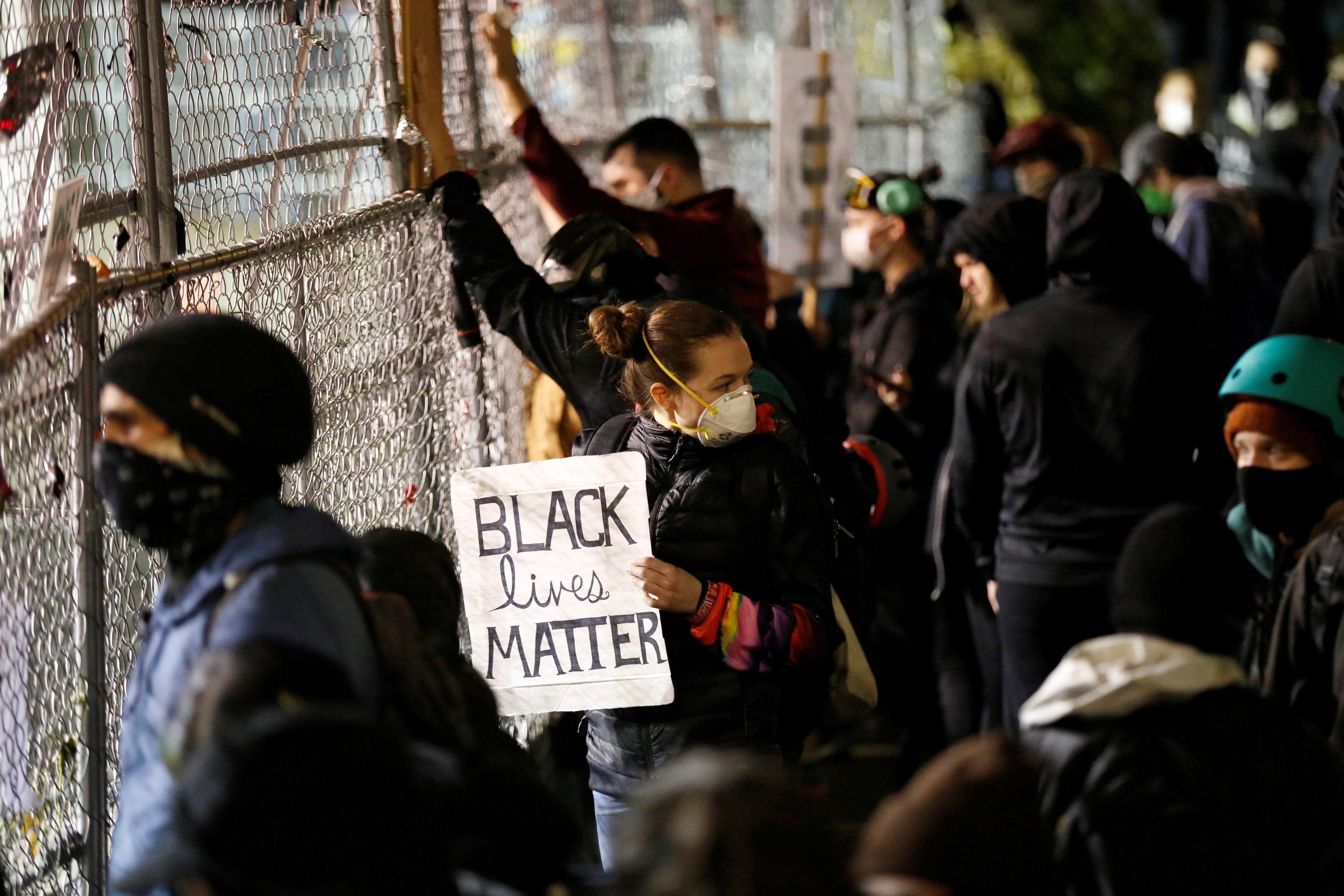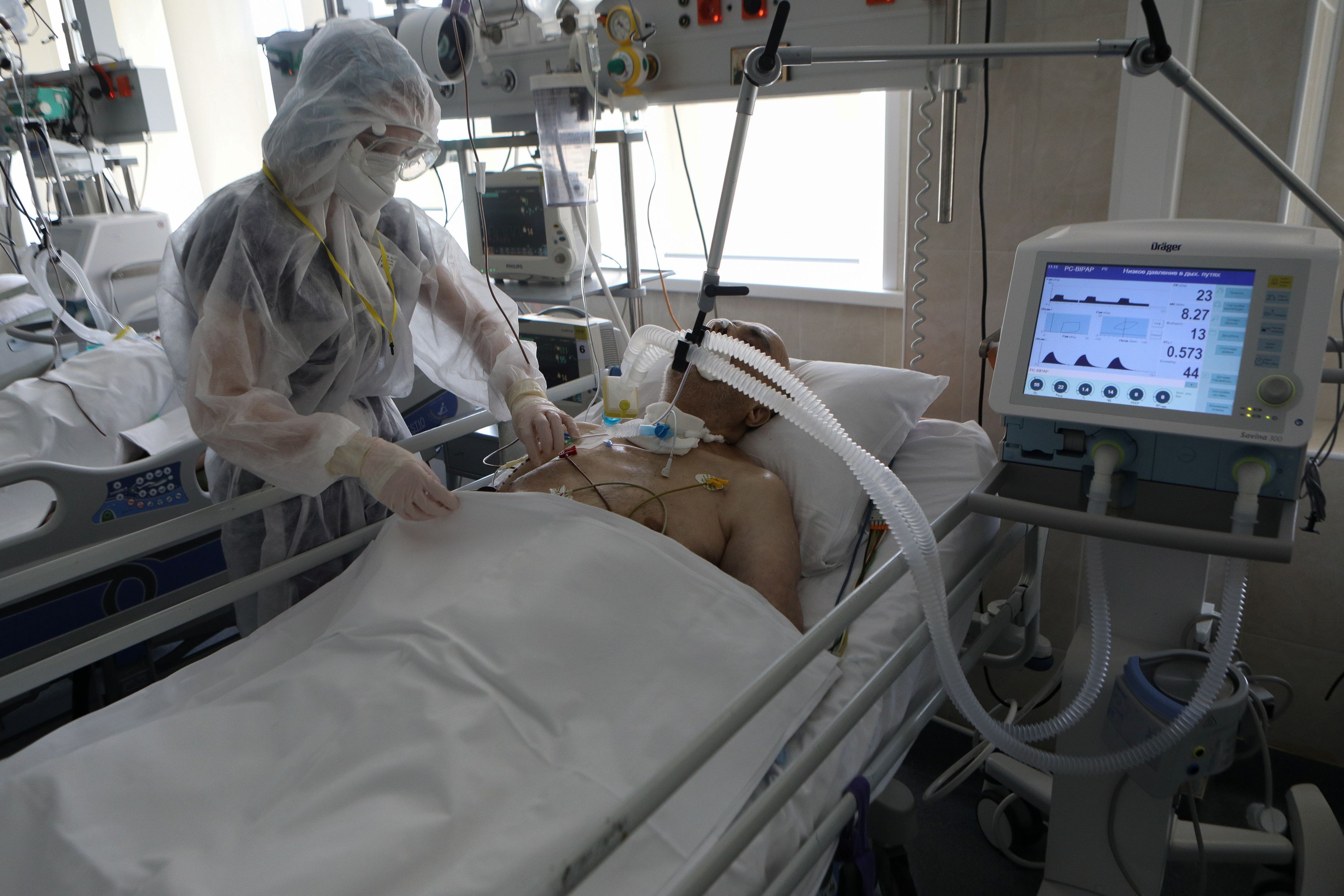00:32

Russian President Vladimir Putin on Sunday criticized anti-racism protests in the United States for sparking crowd violence, in his first comments on the issue.
"If this fight for natural rights, legal rights, turns into mayhem and rioting, I see nothing good for the country," Putin said in an interview with Rossiya-1 television to be broadcast in full on Sunday evening.
"We have never supported this," he said.

Protesters rally against the death in Minneapolis police custody of George Floyd, in Portland, Oregon, U.S. June 13, 2020. /Reuters
Protesters rally against the death in Minneapolis police custody of George Floyd, in Portland, Oregon, U.S. June 13, 2020. /Reuters
The Russian leader stressed he supported black Americans' struggle for equality, calling this "a long-standing problem of the United States."
"We always in the USSR and in modern Russia had a lot of sympathy for the struggle of Afro-Americans for their natural rights," he insisted.
But Putin added that "when - even after crimes are committed - this takes on elements of radical nationalism and extremism, nothing good will come of this."
Putin also described the protests as a sign of "deep-seated internal crises" in the U.S., linking the unrest to the coronavirus pandemic, which he said "has shone a spotlight on general problems."
He said he nevertheless expected that the "fundamental basis of American democracy will allow the country to escape this series of crisis events."
Asked about reactions to the U.S. protests, including demonstrations in Europe and statues being pulled down, Putin said "this is undoubtedly a destructive phenomenon."
He suggested protesters wanted only Afro-American doctors to treat Afro-Americans and said this would be impossible in "multi-ethnic Russia."
The interview was billed as Putin's first since the start of the pandemic though it is not clear when it was recorded. The president made his first public appearance at an open-air event in Moscow on Friday after weeks of lockdown at his country residence.

A medical specialist wearing personal protective equipment (PPE) takes care of a patient in the Intensive Care Unit (ICU) of the City Clinical Hospital Number 15 named after O. Filatov, amid the outbreak of the coronavirus disease (COVID-19) in Moscow, Russia, in this handout picture released June 12, 2020. /Reuters
A medical specialist wearing personal protective equipment (PPE) takes care of a patient in the Intensive Care Unit (ICU) of the City Clinical Hospital Number 15 named after O. Filatov, amid the outbreak of the coronavirus disease (COVID-19) in Moscow, Russia, in this handout picture released June 12, 2020. /Reuters
Russia handled the epidemic better than the U.S.
In the interview, Putin also said Russia was emerging from the novel coronavirus epidemic with minimal losses, having handled it better than the U.S., where he said party political interests got in the way.
With 528,964 confirmed cases, Russia has the third-highest number of infections after Brazil and the U.S.
Its official death toll stands at 6,948, much lower than in many other countries, including the U.S. which has had over 115,000 deaths. The veracity of Russian statistics has sometimes been the focus of fierce debate, however.
"We are working rather smoothly and emerging from this situation with the coronavirus confidently and, with minimal losses... But in the (United) States that is not happening," Putin told state TV.
Russia's political system had handled the crisis better than its U.S. counterpart because authorities at the federal and regional level had worked as one team without disagreements, unlike those in the United States, Putin said.
"I can't imagine someone in the (Russian) government or regions saying we are not going to do what the government or president say," he said. "It seems to me that the problem (in the U.S.) is that group, in this case party interests, are put above those of society's as a whole, above the interests of the people."
The virus had exposed what he called deep internal crises that dated back to U.S. President Donald Trump's election victory and efforts by rivals to undermine its legitimacy.
(With input from AFP, Reuters)
(Cover: Russian President Vladimir Putin takes part in a video conference call with members of the Security Council at the Novo-Ogaryovo state residence outside Moscow, Russia, June 4, 2020. /Reuters)